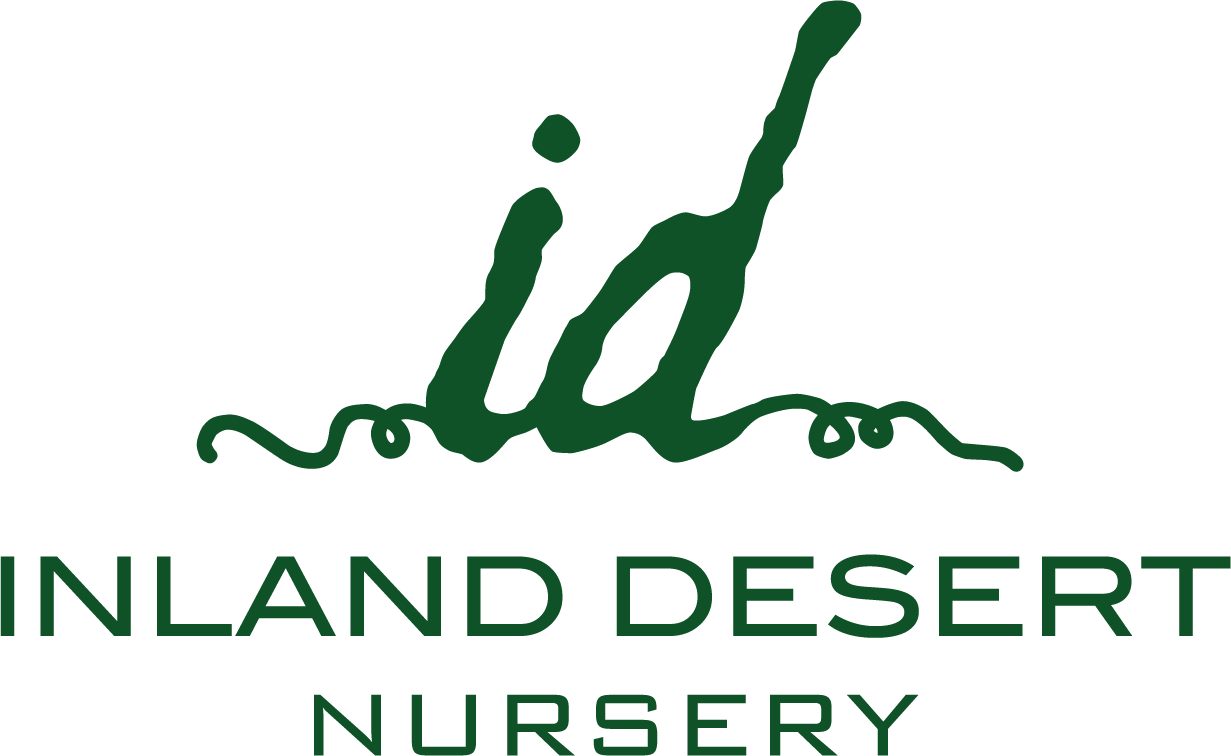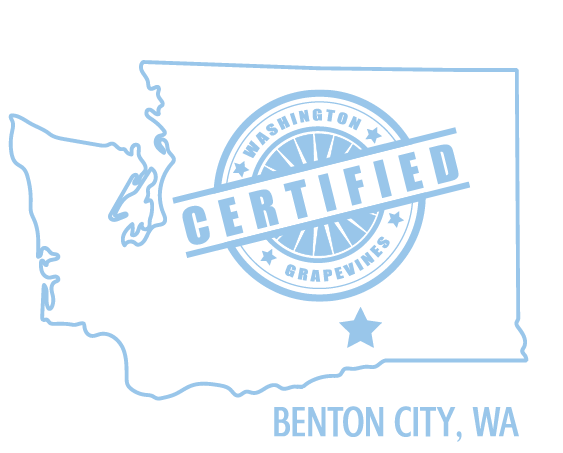
View WSDA Test Results
Investing in the future
Investing in your vineyard isn’t just about the present; it’s a commitment to the future. At Inland Desert Nursery, we understand the significance of safeguarding your investment and protecting your fellow growers from threats like the red blotch virus.
The propagation of red blotch can have devastating consequences, not only for your vines but also for your neighbors’ investments. One careless mistake can lead to substantial losses and strained relationships.
That’s why we emphasize the importance of responsible vineyard management. Discouraging growers from taking cuttings from their own or others’ vines for new plantings is crucial in preventing the spread of this harmful virus. Instead, we encourage growers to opt for Washington Certified Vines, ensuring reliable and disease-free vines.
Choosing Washington Certified Vines is more than a decision; it’s a commitment to the longevity of your vineyard and the well-being of your neighbors. By prioritizing certified clean vines, growers not only protect their own investment but also contribute to a healthier and more resilient viticultural community.
Delivering the highest national standard of clean plant propagation
Washington Certified Grepevines are the best insurance there is against devastating viruses and disease. Inland Desert Nursery’s relationship with the Clean Plant Center of the Northwest at Washington State University and Foundation Plant Services at UC Davis means our certified vines are only a generation or two away from foundation-sourced cuttings indexed as disease-free and true to type.
WSU scientists and WSDA inspectors are frequent visitors to Inland Desert, observing our nursery procedures and performing follow-up testing to ensure that the material is as reliable as when it left the foundation.
Inland Desert Nursery has more than 150 acres of WSDA-registered rootstock and scion propagation blocks under cultivation. That guarantees a long-term supply of clean plant material for grape growers in the northwest and across North America.
National Clean Plant Network
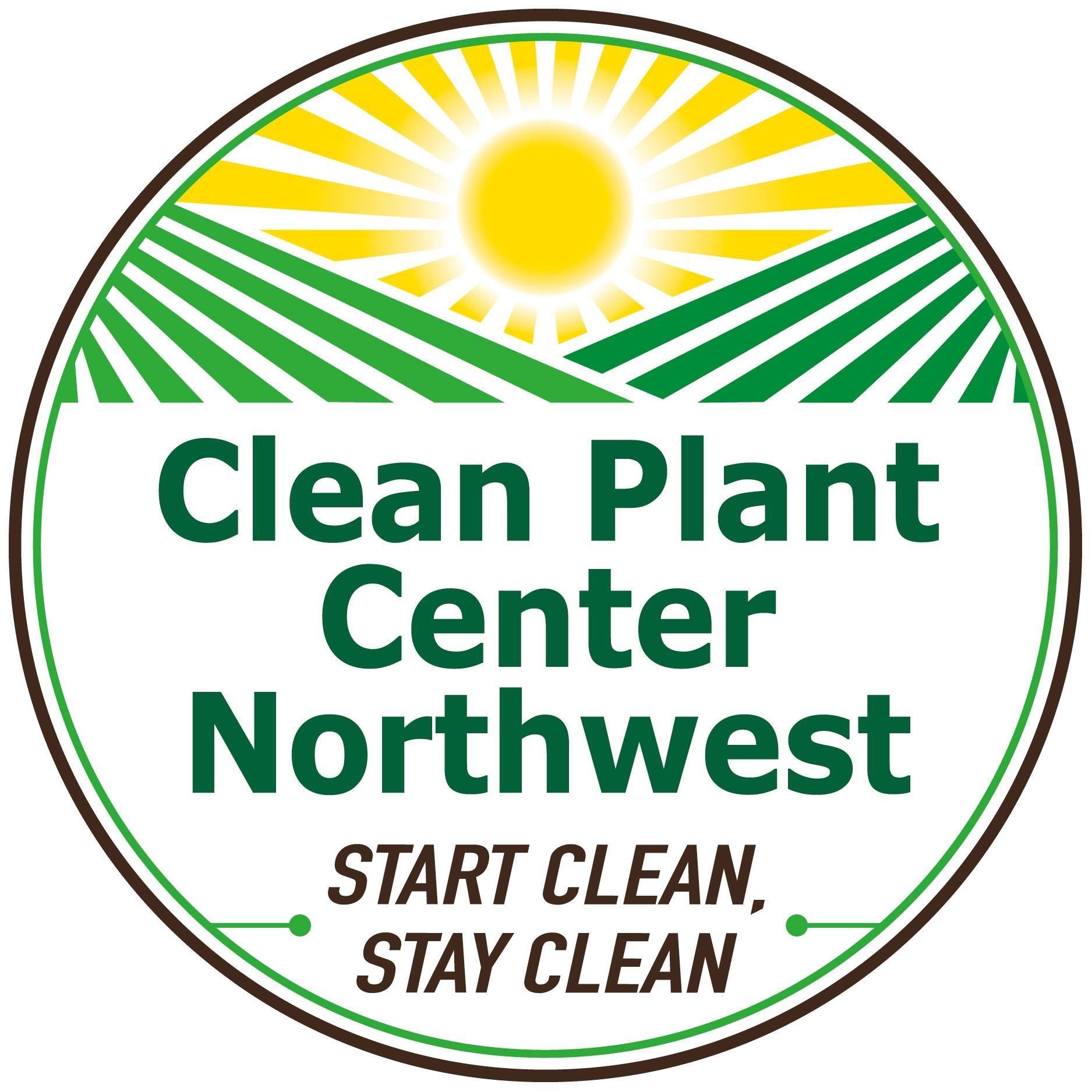
The National Clean Plant Network (CPCNW) has several Clean Plant Centers around the country, including one—Washington State University’s Irrigated Agriculture Research and Extension Center (WSU-IAREC) which is located just 12 miles from Inland Desert Nursery in Prosser, Washington.
The CPCNW staff works with WSU—IAREC professors and researchers to expand and develop the variety and availability of virus-tested, “clean” plants for the industry. All source material originates from the National Clean Plant Center (NCPN). Laboratories are located in Washington, Idaho, California, Missouri, New York and Oregon.

“The National Clean Plant Network is critical to the future of our business. Having the support of the Clean Plant Center Northwest in Prosser, Washington and Foundation Plant Services in Davis, California is essential to our mission of providing clean vines to our clients.”
– Kevin Judkins, Owner/CEO, Inland Desert Nursery
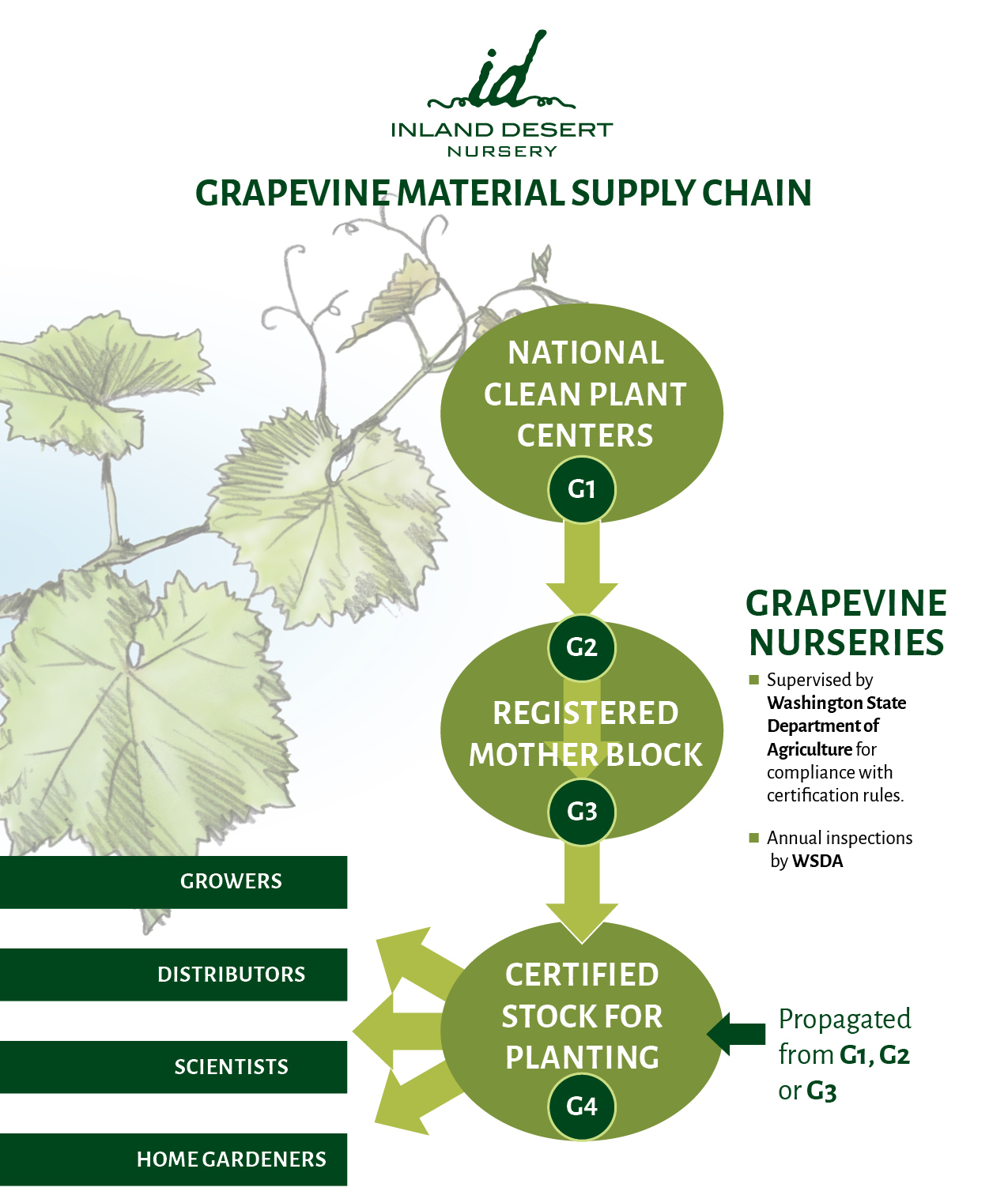
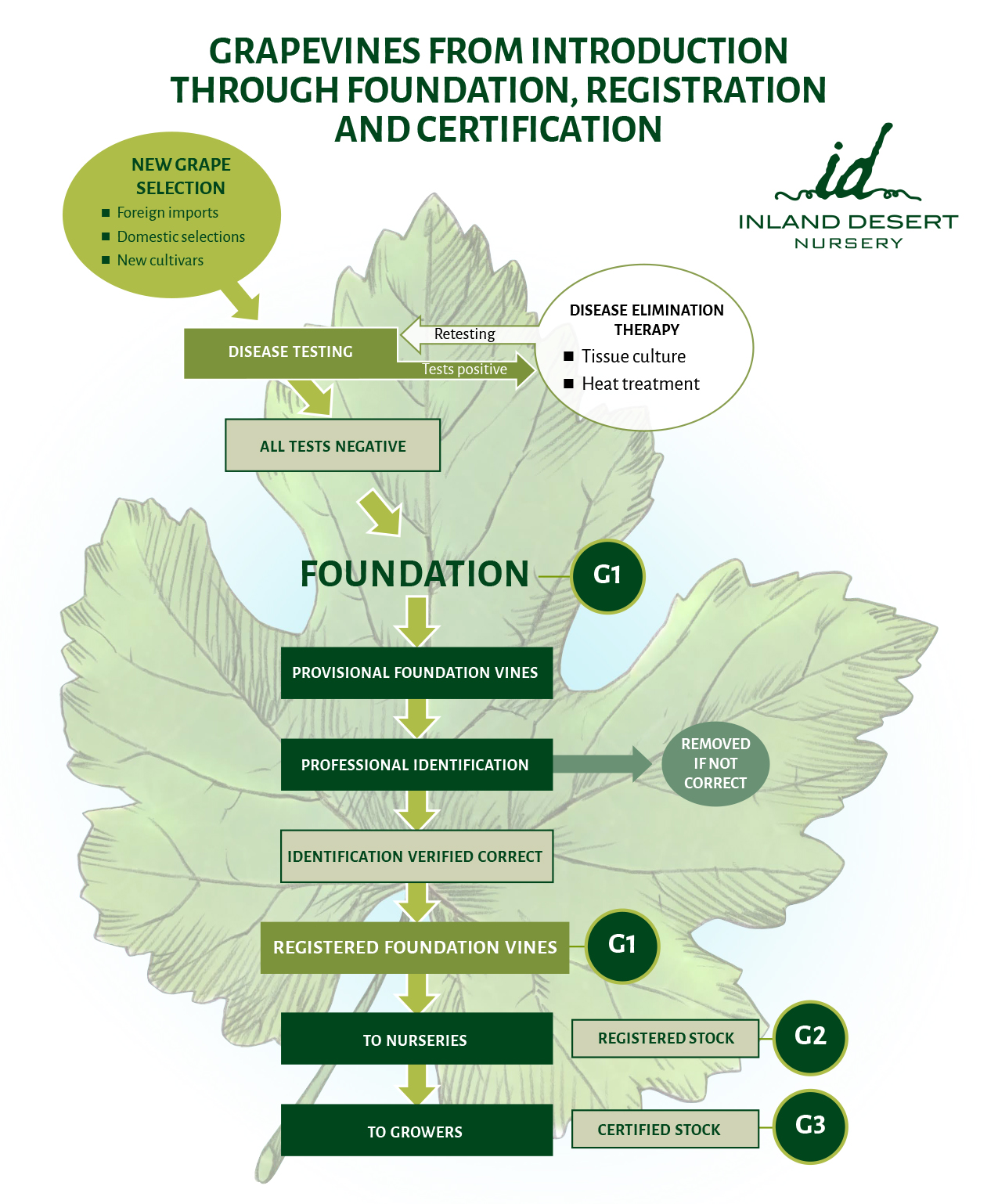
Nursery Certification
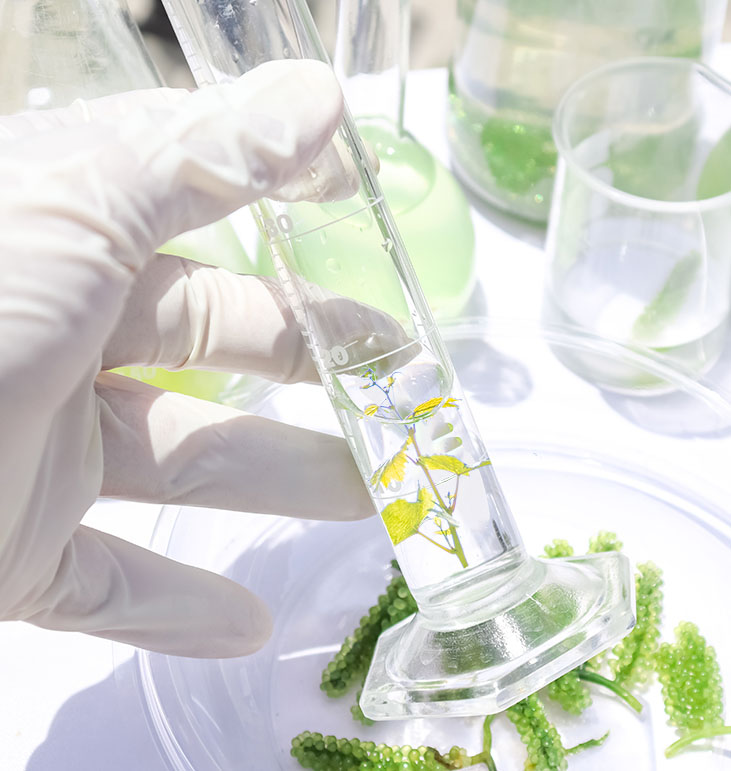
The Cleanest Source Material
Over a decade ago, members of the grape and tree fruit industries created a program to promote the use of tested and proven healthy plant material. They were joined in 2010 by members of the berry, citrus and hop industries.
As a part of what is now the National Clean Plant Network, (CPCNW) several Clean Plant Centers were created around the country. Washington State University – Irrigated Agriculture Research and Extension Center (IAREC) in Prosser, Washington hosts the Clean Plant Center of the Northwest, which is focused on grapes, hops and fruit trees.
The CPCNW staff works with WSU-IAREC professors and researchers to expand and develop the variety and availability of virus-tested, “clean” plants for the industry.
Inland Desert Nursery sources nearly all of its registered plant material from CPCNW. When you order vines from Inland Desert, you can be certain that they are safe, clean and healthy – a great investment in the future of your vineyard.
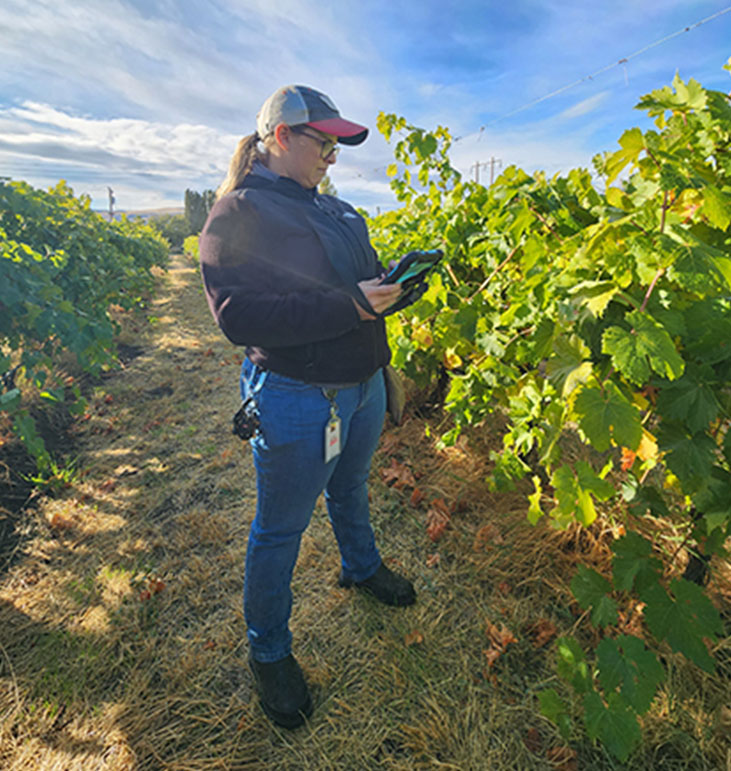
Intensive Ag Practices
Rigorous annual testing and roguing of mother vines ensures we propagate from the cleanest possible material.
Intensive agronomic practices are used to build vine immunity and help protect from outside pressures.
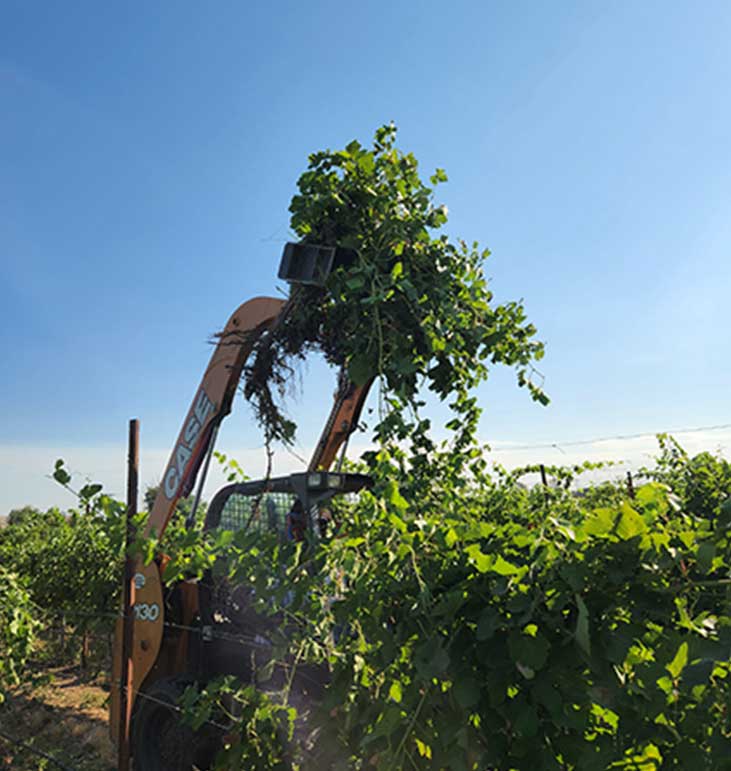
If a mother vine is found to be infected, it is removed, along with the adjacent vines to ensure the infection does not spread.
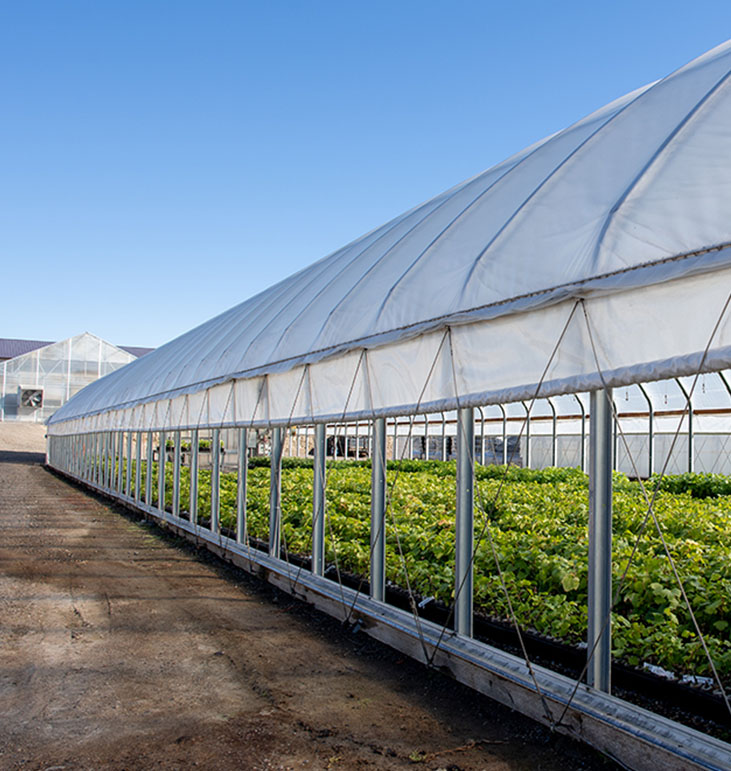
Precautionary Protocols
Inland Desert Nursery goes above and beyond the protocols of both the NCPN and the CPCNW when creating Washington Certified Vines.
Harvested materials are disinfected to remove soil-borne pathogens.
Strict facility maintenance protocols ensure materials start in a disinfected environment each season.
Finished materials exposed to soil during growing season undergo a second disinfection and hot water treatment prior to cold storage.
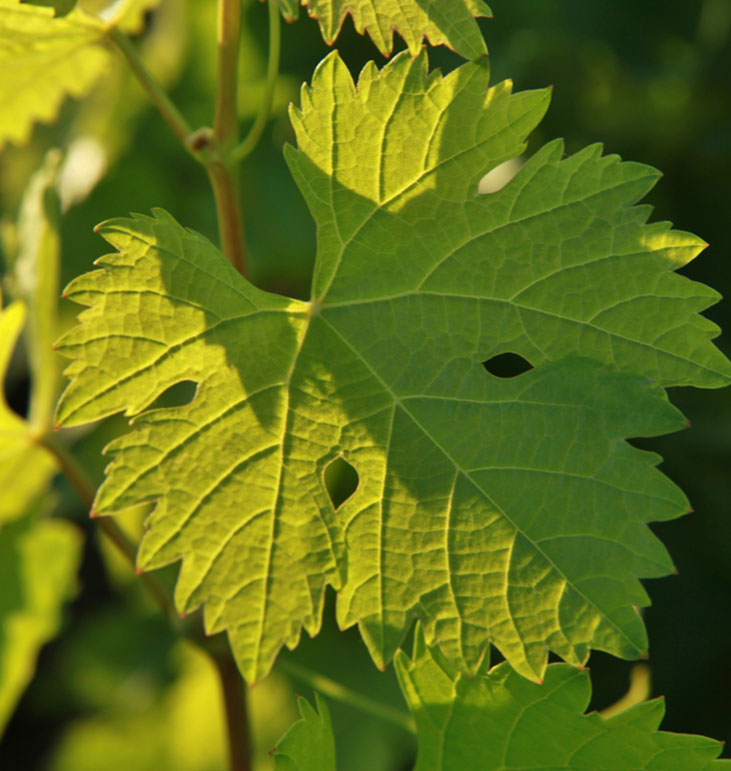
Delivered Clean
The cleanest, healthiest vines are transported to your vineyard so that they arrive shortly before your planting date.
The Research
The research behind Washington’s Certified Grapevines
Dr. Naidu Rayapati is a plant doctor. Specifically, he’s an Associate Professor of Virology in Washington State University’s Department of Plant Pathology and heads up its Grape Virology program.
Dr. Rayapati is also a leading proponent of the exclusive use of certified clean and disease-free grapevines.
In addition to ongoing research at WSU’s Prosser research campus — which also hosts the Clean Plant Center of the Northwest — Dr. Rayapati invests time with nurseries such as Inland Desert and grape growers to ensure that results of his research come into practical use improving the health and cleanliness of the state’s vineyards and the nursery stock from which they are grown.
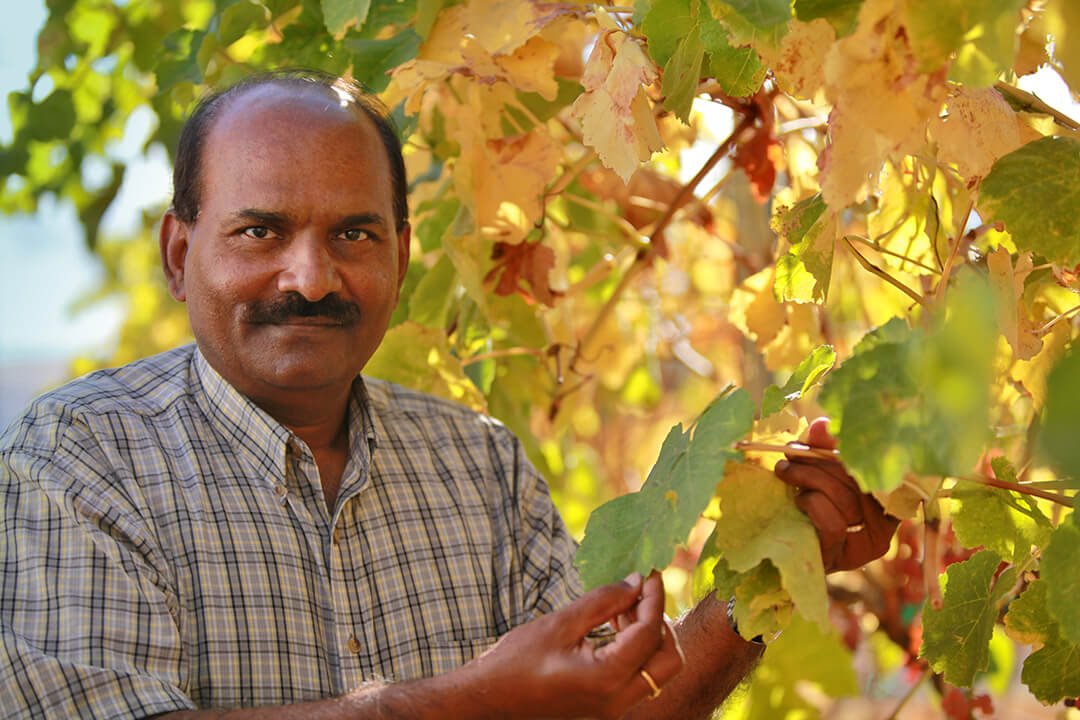
NAIDU RAYAPATI, PhD, VIROLOGIST
WASHINGTON STATE UNIVERSITY
Our Location

days of sunshine
degree parallel
degree Diurnal Shift
Inches of Rainfall
hours of daylight
Ideally Isolated
Inland Desert Nursery has a unique location—one that provides optimal growing conditions for clean, healthy vines:
• an irrigated, arid desert with plenty of isolation from production vineyards.
• in the heart of the finest winegrape growing region in the country.
Buffer of Protection
Founder Tom Judkins long ago understood the value of buffering. He had the foresight to acquire land around the nursery. On this land, he planted cherry orchards as a shield of protection from vectors that could threaten the health of the mother blocks.
Highest standards in the nation
Our clean vine management protocols add another layer of protection: keeping vines clean, isolated and buffered from other vineyards is just the first step.
Detailed management of the motherblock combined with the most intense annual testing in the country contributes to the overall wellness of the plants we deliver.
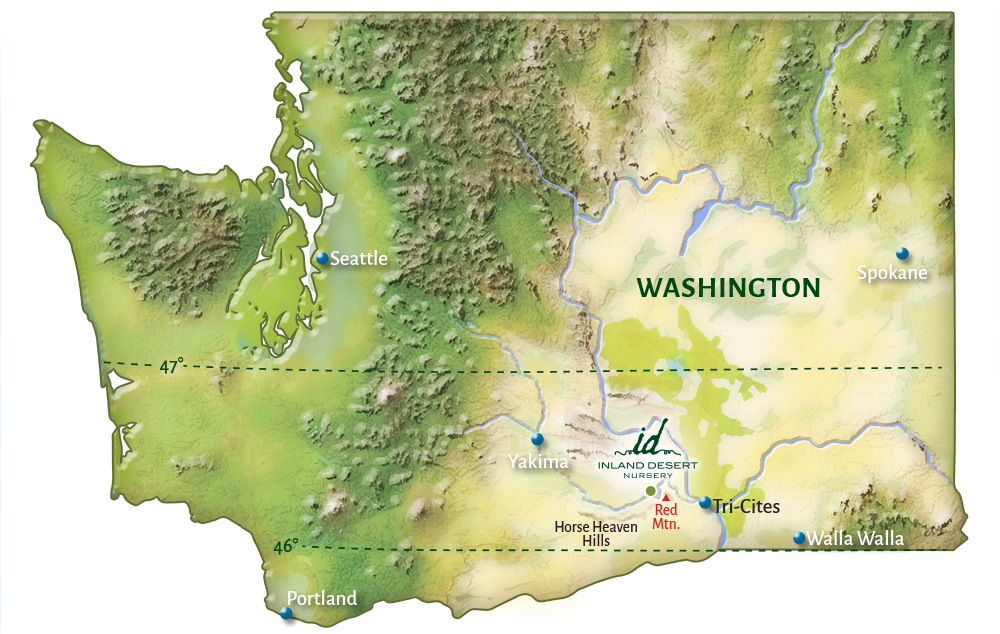
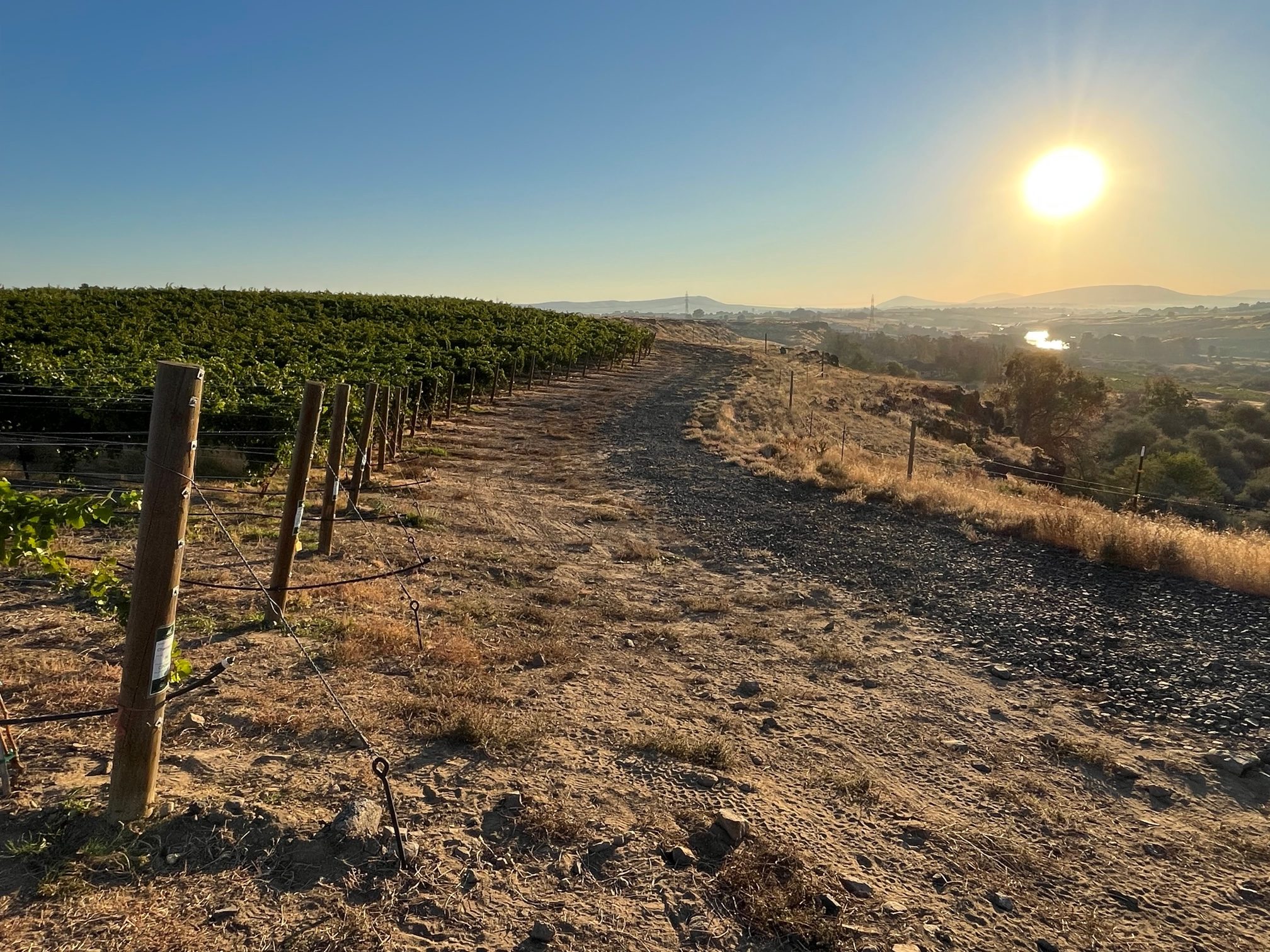
Motherblock locations are selected for their isolation and ability to be buffered from production vineyards to protect certified materials from virus/disease-carrying vectors.
